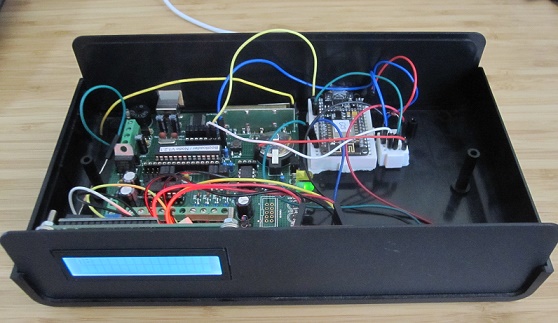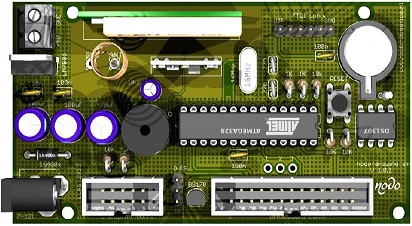Difference between revisions of "User:Martinus/NodoSmallRevival"
| Line 5: | Line 5: | ||
Still have some old Nodo Small hardware laying around? And would like to integrate with more future proof communication and/or controllers? | Still have some old Nodo Small hardware laying around? And would like to integrate with more future proof communication and/or controllers? | ||
| + | |||
| + | [[file:User-Martinus-NSM.jpg]] | ||
I have converted my old Nodo Arduino board to a new controller that can still control several KAKU lights in a similar way that the Nodo used to do. | I have converted my old Nodo Arduino board to a new controller that can still control several KAKU lights in a similar way that the Nodo used to do. | ||
Revision as of 17:18, 21 October 2017
Nodo Small Revival
Introduction
Still have some old Nodo Small hardware laying around? And would like to integrate with more future proof communication and/or controllers?
I have converted my old Nodo Arduino board to a new controller that can still control several KAKU lights in a similar way that the Nodo used to do.
Hardware
- Nodo Arduino 1.6/1.7 or Nodo Small board
- ESP8266 module
Software
- RFLink Small https://github.com/letscontrolit/RFLinkSmall
- ESP Easy
Configuration
The ESP Easy module has only the Serial Server configure to listen to the serial output from the RFLink module. While another server could connect to the Serial Server, it is not in use. The Serial Server creates events that can be handled within the rule engine. The SerialSend command from the plugin can control the RFLink module.
Incoming events are to be treated as literal strings so these events are preceded with the '!' symbol. This means that the '=' symbol is ignored and the entire event can be used as a trigger.
In my case, the Logitech harmony emulates a Kaku transmitter on IR using the same protocol. So RFLink just thinks that is gets events from a real KAKU transmitter.

